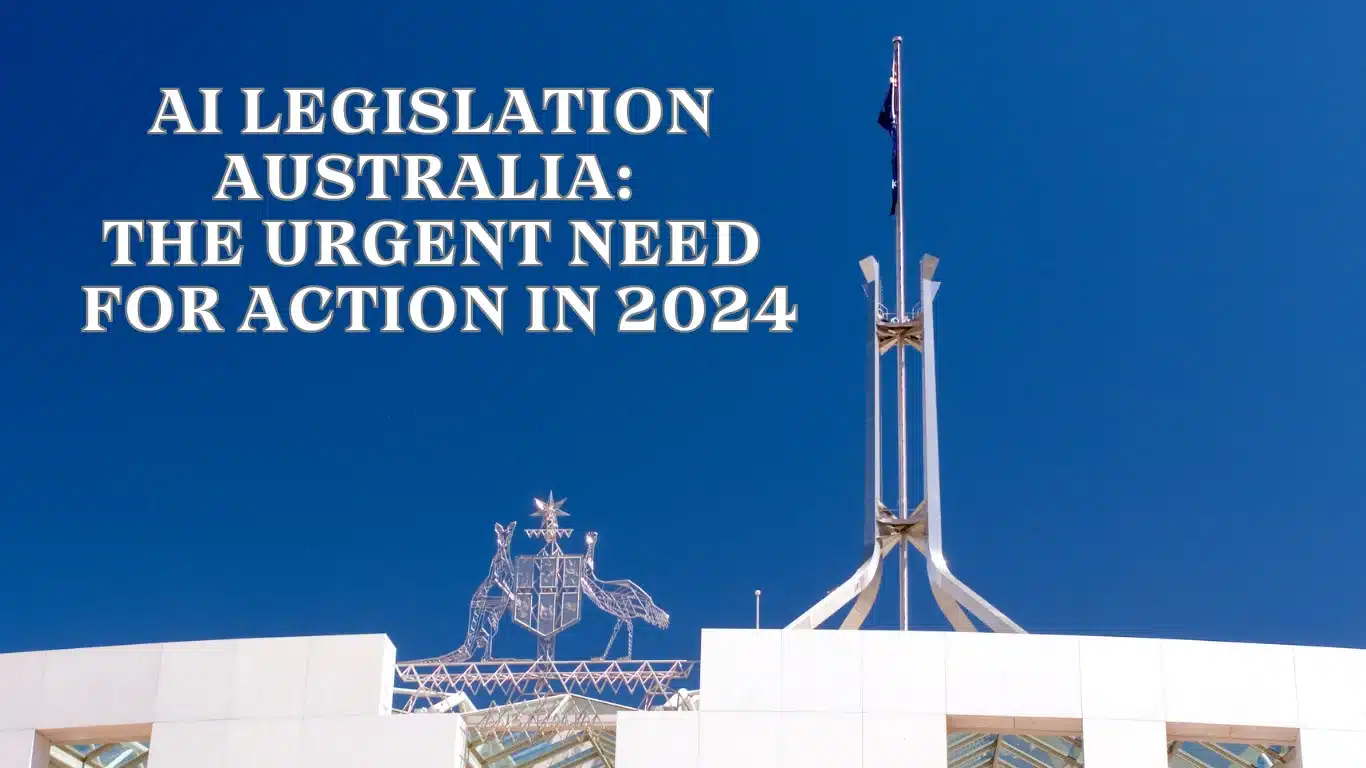Artificial Intelligence (AI) is quickly transforming our world. It encompasses a broad range of technologies designed to perform tasks or solve problems autonomously without human intervention. These technologies have the potential to boost Australia’s economy and social unity significantly. However, there’s a growing need for a regulatory framework that ensures these benefits are realised while minimising negative impacts.
Australia is a key player in this space, with AI legislation as a topic of significant interest and importance. In this article, we’ll delve into the aspects of AI regulation Australia is examining, concerns, proposed laws, and plans.
Table of Contents
AI’s Global Impact and Australia’s Response
AI is a transformative technology that’s reshaping industries worldwide. From healthcare to manufacturing, AI’s potential is vast. However, its transformative power also raises significant ethical and regulatory issues. Australia, being an advanced economy, has been proactive in addressing these challenges. The country is among the first to regulate AI and has been strengthening its approach to ensure that AI’s benefits are harnessed while mitigating potential risks.
AI in Australia: The Current Scenario
Australia is making significant strides in the AI sector, with a myriad of public-private initiatives underway to ensure the ethical development, deployment, and governance of AI systems. However, the rapid evolution of AI technologies poses unique challenges to existing legal and regulatory frameworks around privacy, data protection, and human rights.
Legislation and Legal Compliance
Existing legislation related to AI in Australia primarily falls under the Privacy Act 1988, which provides protections for ‘personal information’. This term encompasses any information or opinion about an identified individual, whether true or not, and whether recorded in a material form or not. This law is central to any discussion on AI ethics, as it directly impacts how personal information is collected, used, and shared by AI systems.
However, the Privacy Act is not the sole legislation governing the use of AI. There are privacy principles established at the state and territory level that also regulate access to personal information. Moreover, the Therapeutic Goods Act 1989 (Cth) governs the use of AI in the medical field, provided the AI system fits the definition of a ‘medical device’.
Intellectual Property (IP) and AI
Another crucial aspect of AI regulation is the clarity on IP rights concerning publicly available data used for the development and training of AI models, and AI outputs. This includes the consideration of legislating for a database right, and the regulation of IP ownership of AI systems concerning open-source algorithms and the data used for their development.
The Concerns with AI Technology

There are numerous concerns associated with AI technology that have prompted calls for stricter regulation. These include privacy issues, algorithmic discrimination, automation bias, and the spread of misinformation and disinformation. Moreover, AI can pose risks when combined with other technologies, such as neurotechnology or extended reality.
The Proposal for Stricter AI Regulation
In response to these concerns, Australia proposed plans to regulate AI more strictly, including a potential ban on deep fakes and false content. These proposals came following a meeting of top AI executives who raised the “risk of extinction from AI” and called for policymakers to equate it with the risks posed by pandemics and nuclear war. The report by Australia’s National Science and Technology Council also highlighted that AI-generated content could be used to mislead public opinion in parliamentary consultations.
The Australian Human Rights Commission’s Submission
The Australian Human Rights Commission made a significant submission in response to the Department of Industry, Science, and Resources’ Supporting Responsible AI: Discussion Paper. The Commission highlighted that AI operates in a patchwork regulatory environment that has allowed it to increase without adequate protection against human rights harms. It recommended that the government conduct a regulatory gaps analysis to determine how existing legislation applies to AI and where gaps exist.
The Role of the Proposed AI Commissioner
The Commission reinforced its recommendation to create an AI Commissioner to assist in the development of best practices and guidance on AI. This body would function as a source of expertise on AI, guiding the government and the private sector on complying with laws surrounding AI’s development and use.
KPMG’s Recommendations for Safe and Responsible AI
Professional services firm KPMG Australia submitted a comprehensive report with recommendations for safe and responsible AI in Australia. It recommended a people-centred approach to AI that prioritises regulatory action on the human rights impact of specific types of data used in AI solutions, data protection, and data integrity. KPMG also recommended regulatory harmonisation across Australia and greater consistency with international frameworks to reduce administrative burden and assist technology exporters.
KPMG’s 16 Recommendations for AI Regulation in Australia
KPMG outlined 16 recommendations in its submission. These include suggestions for regulatory action, non-regulatory initiatives, and a call for a federal Commissioner. It also recommended that the government help organisations embed assessments and frameworks for designing and implementing AI and that any regulatory settings for AI should build on existing frameworks like privacy and discrimination laws.
Recommendations for Regulatory Action
For effective regulation of AI, the following areas could be considered for regulatory action:
- Human rights impacts and harms of using specific types of data to develop AI solutions.
- Data-related concepts such as data integrity and quality, data ownership, data collection, anonymisation, de-identification, encryption and their role in the context of AI and protection of human rights.
- The definition of ‘personal information’ given the increasingly diverse types of data that could trigger harms and human rights violations.
- The consideration of an advisory board to provide ongoing support in relation to AI regulations, ethics and data sharing, including examining international trends and ensuring Australia’s regulations align to reduce administrative burden.
The Future of AI Legislation in Australia

Given the complex and rapidly evolving nature of AI, it is crucial to have an effective oversight, enforcement, and redress regime. To this end, the establishment of a regulatory body should be carefully considered. This body should oversee the implementation of, compliance with, and enforcement of an ethical framework and principles for AI.
The future of AI legislation in Australia is still ahead. The country is actively working towards developing comprehensive and robust laws to regulate AI and ensure its ethical deployment. While challenges remain, Australia’s proactive approach represents a significant step forward in managing the risks and harnessing the benefits of this transformative technology.
FAQs
What is AI Legislation Australia?
AI Legislation Australia refers to the laws and regulations governing the use and deployment of Artificial Intelligence in the country.
Why is AI regulation important?
AI regulation is essential to ensure the ethical use of AI, protect individuals’ rights, and prevent potential misuse of the technology.
What are the main concerns with AI technology?
The main concerns with AI technology include privacy issues, algorithmic discrimination, automation bias, and the spread of misinformation and disinformation.
What steps has Australia taken towards AI regulation?
Australia has taken several steps towards AI regulation, including unveiling a voluntary ethics framework in 2018, proposing stricter regulation of AI, and the Australian Human Rights Commission making a significant submission recommending further regulatory action.
What is the role of the proposed AI Commissioner?
The proposed AI Commissioner would provide expertise on AI, offering guidance to the government and the private sector on complying with laws surrounding the development and use of AI.





